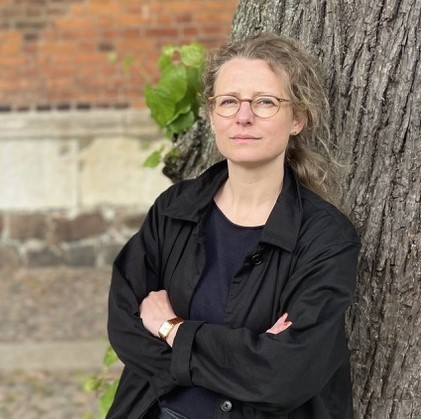Antje Kempe is an art historian and, since 2019, Postdoctoral Fellow in the sub-project “Shared Heritage” of the Interdisciplinary Centre for Baltic Sea Region Research (IFZO) project “Fragmented Transformations: Perceptions, Constructions, Constitutions of a Region in Transition”. Her research explores gardens of early modern Europe until today’s landscape architecture, focusing on interactions between human and non-human authors in creating landscapes. Furthermore, she is interested in how art history was written and framed in the socialist era. She studied art history, history, and East European Studies in Poznań and Berlin, where she completed her PhD in 2017 about the construction of group identities in the medium of sepulchral art in Habsburg Silesia. She has been a scientific assistant at the Caspar David Friedrich Institute at the University of Greifswald (2011–15, 2017–19) and the Institute of Art and Visual History at Humboldt University in Berlin (2010–11). Since 2010, she has been an editor of the online magazine kunsttexte.de.
Dr Antje Kempe

University of Greifswald
Interdisciplinary Centre for Baltic Sea Region Research (IFZO)
Shared Heritage
Bahnhofstraße 51
17489 Greifswald
antje.kempe[at]uni-greifswald.de
Profile at the Interdisciplinary Centre for Baltic Sea Region Research (IFZO)
Liquid Environments
(Part of: IFZO FragTrans > Shared Heritage)
The Anthropocene and the climate crisis are currently understood as a paradigm and transformation process, causing fragmentation between discourse/theory and practices: On the one hand, theoretical approaches of Posthumanism and New Materialism have emphasized multiple entanglements of humans with nature, questions of plants and animals as actors, or of the sea as space and not just surface. On the other hand, former port areas are being redeveloped as so-called waterfronts, and the seas are increasingly built upon on an unprecedented scale. Against this background, the research project considers how to define liminal water landscapes in more than land-based terms. Taking the notion of liquid environments as a starting point, I want to investigate that water and plants present more than only resources, but have to be seen as co-authors of landscape design.
With a focus on garden and landscape architecture as a concept through which the appropriation of a landscape can best be understood (Vogt/Burckhardt 2021), and related artistic practices, a diachronic perspective from the 17th century to the present day will examine trans-formations of liminal spaces. The question of the role played by more than human actors, such as plants and water, is not only relevant against the background of the abovementioned discourses, but is also determined by the fact that plants and water have always been essential elements of garden design. Tracing the developments from the baroque garden (e.g. Drottningholm, Österna, or Öster Malma) to today’s urban agglomeration spaces with their waterfronts in former harbour areas (Oslo, Copenhagen, Gothenburg, Gdansk) the goal is to overcome the notion of garden and landscape architecture as merely structured by human work and design processes, but as space designed by humans and non-human actors alike. In this way, concepts such as agency and co-habitation, which have emerged in posthumanism and new materiality theories and are applied widely in contemporary artistic practices, are to be questioned regarding their limitations and viability for landscape architecture in the history of art.
The project is thus situated at the intersection of discourses on the critique of the Anthropocene, the concept of the Planetary Garden by the French landscape architect and philosopher Gilles Cléments, and the diverse approaches of a Blue Humanities in order to reflect on human and non-human entanglements in design processes. In this way, the project also aims to broaden the interpretation of heritage, which in research is still determined by concepts such as stability, ownership, and values.